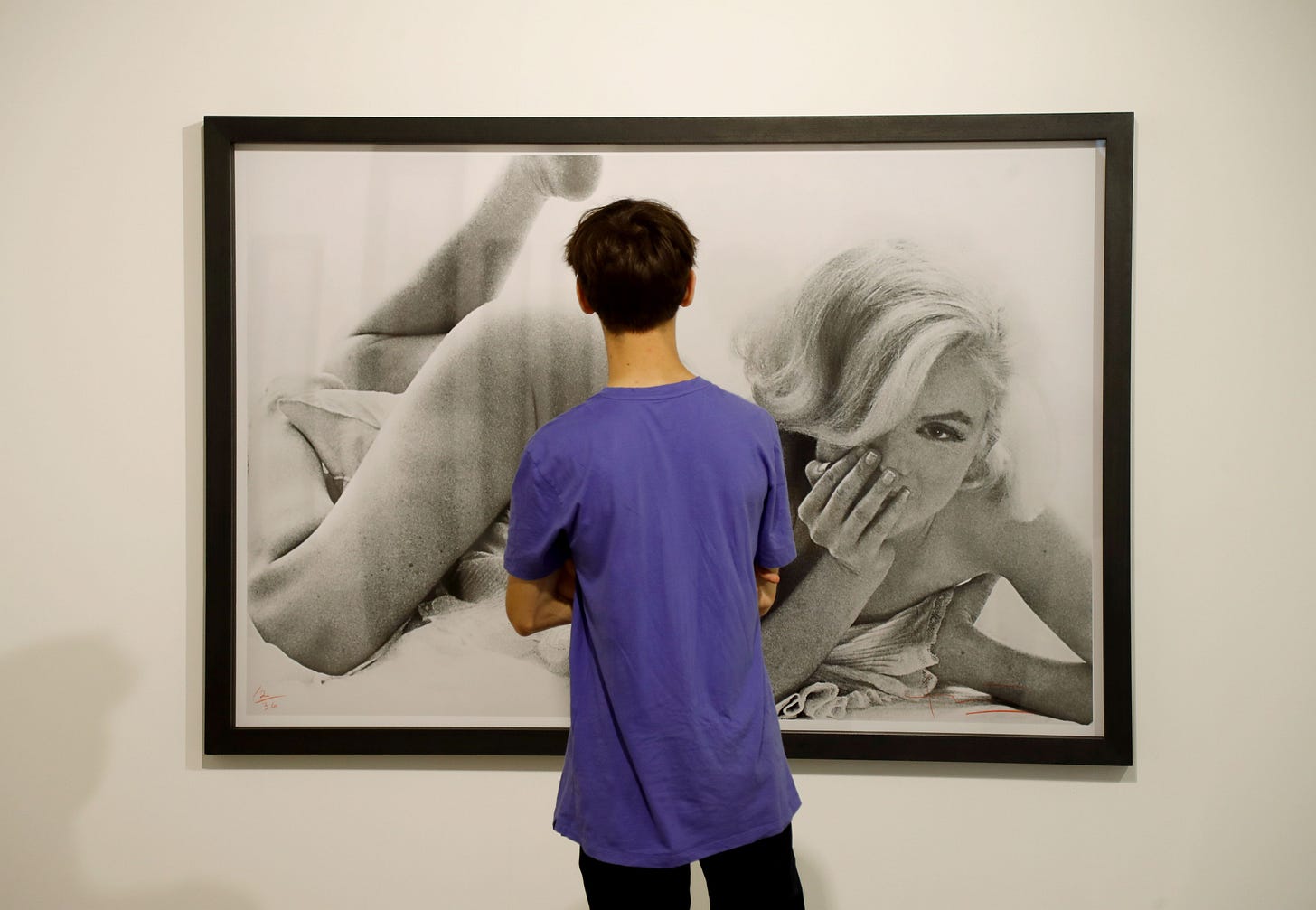Making the Shift from Object to Subject
And not just grammar-wise.

Recent conversations have helped me clarify for myself what’s been transgressive about writing and publishing my memoir, which in part examines my dynamics with, and conditioning around, men.
The first conversation was with an older relative who took me to task for some of my grammatical choices in the book, places in which I wrote phrases like, “younger than me,” instead of “younger than I,” or “my sister and me,” instead of “my sister and I,” etc. I explained that some of the time, I was trying to sound conversational, to write in the colloquial way we speak, rather than like a stuffy English lit professor. In other instances, I noted, my choices were likely grammatically correct, relative to which character in the sentence was the subject, and which was the object—subtleties not easily parsed by those not in the business of constructing and deconstructing sentences.
I recalled how deeply I was affected by three words uttered by a boyfriend from my late 20s: “She’s so fuckable.”
That conversation got me thinking about subjects and objects more generally, beyond grammar. Who (subject) is writing about whom (object)? Who’s the observer? Who holds the power in the particular telling of a story?
Next, I was interviewed by Kim France and Jennifer Romolini on “Everything Is Fine,” their wonderful podcast for women over 40. At one point, we talked about the ways in which the three of us have performed femininity in the past to appeal to men. I recalled how deeply I was affected by three words uttered by a boyfriend from my late 20s: “She’s so fuckable.” He was referring to Marilyn Monroe (cliche of cliches); on his living room wall was a nude from Bert Stern’s iconic 1962 series, “The Last Sitting.”
It was the early 90s. I was snuggling with said boyfriend on his couch, watching TV together under a throw blanket, our limbs intertwined, when he uttered those three little words. They were designed to create distance, to remind me of my place in the never ending beauty contest that is life for a straight woman in this culture. You’ll never be her.
Thus began my regrettable Portrait-of-the-Artist-as-a-Sexpot phase, in which my main goal in life was to be recognized, indisputably, as “fuckable.” In the space of a few months my daily uniform evolved from “suburban married lady” in Gap chinos and boatneck tees, to “urban tart” in too tight, belted 501s with crushed velvet scoop-necked body suits, chunky platform boots, velvet choker necklaces, my wavy hair “sprunched” into a deliberate mess, and too much makeup. I was like a grunge-era Sandy from Grease.
Thus began my regrettable Portrait-of-the-Artist-as-a-Sexpot phase, in which my main goal in life was to be recognized, indisputably, as “fuckable.”
In those days, the only way I knew to derive power in relationships with men was to become a more alluring object. In later scrutinizing those dynamics as an author I flipped the script, making myself the subject, with the power to control the narrative.
Finally, I spent some time last week with an old friend, and she and I talked about the way in which our mutual guy friend reacted to the part of my memoir in which I wrote (vaguely) about an abusive ex. He was so protective of the dude, and so much more concerned with my writing about the abuse than my enduring it. It was astonishing.
I realized that part of what he was likely responding to was that shift in the power dynamic—the shift from object to subject. I, a woman, was daring to tell about the way I’d been objectified and diminished, not to mention emotionally and physically harmed, by a person who’d previously been in the driver’s seat. A straight man. The kind of person who has always been in the driver’s seat.
In those days, the only way I knew to derive power in relationships with men was to become a more alluring object. In later scrutinizing those dynamics as an author I flipped the script, making myself the subject, with the power to control the narrative.
I get it. I often find myself reflexively sympathizing with men. The tendency toward “himpathy” is real. It’s part of our patriarchal cultural conditioning, our emotional DNA.
All the more reason for me to try to counteract that, in myself, and in readers. If it makes some people unhappy with me, so be it.
Last week, Catapult published my essay about some things I wish I’d known as a younger writer in their “Don’t Write Alone” series.

Himpathy, indeed!